
Land for Sale in Crockett County, Tennessee
FARMLAND, HUNTING, & CHICKEN FARMSFlat delta soils and productive river bottoms give Crockett County its agricultural character. Located in West Tennessee, this land supports soybeans, corn, and cotton, along with chicken houses and pasture operations. Wildlife habitat runs along drainage corridors and small timber patches, providing plenty of room for recreation. Buyers are also drawn by the county’s strong farm tradition, local canning history, and its proximity to the Forked Deer River, which influences both land value and wildlife patterns.

- 1 to 1 of 1
- 1
Why Crockett County Tennessee Land Attracts Buyers
Crockett County appeals to land buyers looking for productive soils and easy access to West Tennessee markets. The terrain here favors broad, workable fields with little slope, making it ideal for row crop farming. Chicken operations also dot the county, supported by a strong ag infrastructure and access to contract poultry markets. Buyers also benefit from competitive land prices compared to more urbanized counties nearby.
Landowners in Crockett County enjoy multiple use options. Some properties carry active farming leases, while others are suited for new chicken house construction or rural home sites. Because of the proximity to the Forked Deer River, many tracts offer a mix of upland fields and bottomland hardwoods, making them attractive to recreational hunters as well. For investors, Crockett offers a lower entry cost per acre while still delivering good yields and consistent tenant demand.
Those drawn to rural living appreciate the peace and space of Crockett County without losing access to highways, co-ops, or schools. Communities like Bells and Alamo provide the essentials, while Jackson and Memphis are within reach for logistics and supplies. Between farm income, hunting value, and a close-knit culture, this part of West Tennessee continues to attract practical buyers.
Crockett County Natural Features Buyers Should Know
The natural features in Crockett County play a big role in both farm productivity and hunting potential. Most of the land is flat to gently sloped with rich delta soils. Drainage ditches and waterways feed into the Forked Deer River, creating ribbons of bottomland habitat. These wetland corridors support wildlife, water flow, and timber diversity. Timber tracts are smaller than in hillier counties, but some wooded sections remain intact for deer, turkey, and duck hunting.
Forked Deer River System
This river defines much of the drainage in Crockett County. Its tributaries create sloughs and wetland patches ideal for wildlife and seasonal flooding. These lowland zones often border row crop fields, blending agriculture and recreation.
Productive Silt Loam Soils
Crockett County soils are well-suited for row cropping. Silt loam and clay mixtures dominate, with moderate drainage and high fertility. Many farms here operate without needing irrigation, depending on natural rainfall patterns.
Bottomland Timber Strips
Though not widespread, timber stands still exist in creek bottoms and field margins. These areas provide cover for deer, turkey, and small game. They also offer opportunities for wetland banking or conservation projects.
Farming, Chickens, and Row Crop Investment Land
Land use in Crockett County centers on commercial farming, particularly soybeans, corn, and cotton. The region’s drainage systems and flat topography favor mechanized agriculture. Chicken operations also remain active, especially near existing poultry infrastructure. Investors often seek farmland here due to consistent leases, strong commodity markets, and lower taxes compared to nearby counties.
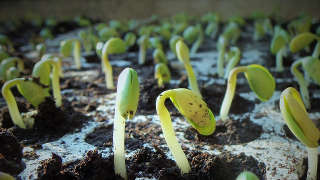
Soybeans
Soybeans dominate the row crop landscape in Crockett County. Fields benefit from deep silt loam soils, minimal slope, and good drainage. Most farms rotate beans with corn or wheat, and yields are stable year to year. Investors favor soybean acreage for its low risk and leasing stability in this part of West Tennessee.
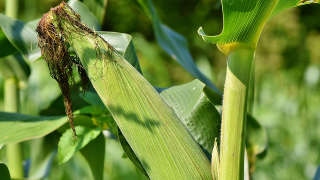
Corn
Corn is widely planted and often follows soybeans in rotation. While not all fields are irrigated, most receive adequate rainfall. Cornfields in Crockett County support both grain sales and silage for local livestock. Tracts with reliable access roads and bins see higher rental demand.
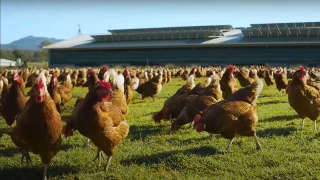
Chicken Houses
Several chicken operations exist throughout the county, producing broilers under contract. Properties with utility hookups and bio-secure access are especially valuable. Some landowners also repurpose former poultry houses for storage or light livestock. New builds require setbacks, so due diligence is key when evaluating a parcel for chicken farming.
Are you selling land in Tennessee
Let Tutt Land Do the Heavy Lifting
Whether you're selling pastureland in Bedford County, timber acreage in Wayne, a poultry farm in Giles, or hunting property in Hardeman—Tutt Land Company has you covered. With 80+ years of experience buying, managing, and marketing rural land across Tennessee, we specialize in turning local properties into statewide opportunities.
We showcase your land across high-traffic platforms—from YouTube and social media to print advertising and top national land listing networks. Our marketing strategy targets qualified buyers searching for everything from mini farms and investment tracts to equestrian estates and raw acreage.
List your Tennessee land with Tutt Land and get the exposure, expertise, and energy your property deserves.
West Tennessee Hunting and Wildlife in Crockett County
Habitat diversity in Crockett County gives rural landowners multiple hunting options. Upland fields, ditch corridors, and sloughs along the Forked Deer River all support game. Timber is not widespread, but wetland edges hold waterfowl and small mammals. Ponds, creeks, and river arms also support local fishing opportunities year-round. Many landowners combine farming and hunting in seasonal leases.
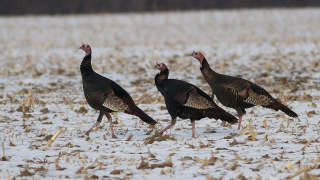
Turkey
Turkey populations thrive along creek edges and field borders. Spring gobblers respond well in open terrain with scattered cover. Hunting access is strong on private land with food plots or timber strips.
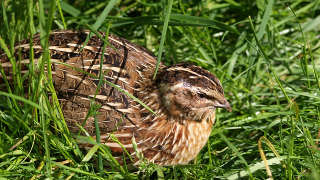
Bobwhite Quail
Bobwhite quail are still present in early successional areas and old field margins. Conservation-minded landowners can manage hedgerows and native grasses to help boost bird numbers.
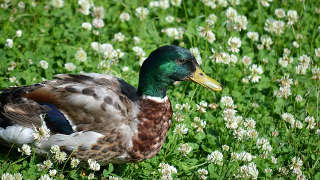
Wood Ducks
Wood ducks use wooded sloughs and creek oxbows for nesting and feeding. Some tracts near the Forked Deer River offer quality shooting during the early and late waterfowl seasons.

Blue Catfish
Blue catfish are common in the Forked Deer River system. They favor deeper holes and slow-moving channels. Anglers report steady catches using cut bait or live minnows year-round.
Farming Heritage and Quiet Life in Crockett County TN
Farming runs deep in Crockett County. Generations of producers have worked these same soils since the early 1900s, and local institutions still support the ag economy. The town of Bells once shipped tomatoes across the country, and its cannery roots are still remembered in local events and buildings. Landowners here often know their neighbors, and rural tracts carry stories along with title records. Buyers looking for space, simplicity, and a strong farming community often find the right fit here.
Land for Sale Near Crockett County Tennessee
If you're looking for rural land near Crockett County, several nearby counties offer similar farming and recreational opportunities. These areas share West Tennessee’s soil profile and ag-focused economy, with access to chicken houses, row crops, and seasonal hunting leases.
Gibson County
Gibson County offers flat farmland, irrigation access, and strong yields for soybeans and corn. It’s also a popular destination for small poultry farms.
Haywood County
Haywood County is known for cotton, corn, and access to emerging industrial projects. Land remains affordable with good lease returns.
Madison County
Madison County offers more infrastructure and market access. Some tracts here combine commercial farming with proximity to Jackson amenities.
FREQUENTLY ASKED QUESTIONS
What kind of fish can you catch around Crockett County?
Most fishing takes place along the Forked Deer River and nearby sloughs. You’ll find species like blue catfish, crappie, and bowfin in the deeper channels. Some private ponds in the area are stocked with largemouth bass, offering good action if you're managing rural land for fishing or family recreation.
Which crops do well in Crockett County?
Soybeans are one of the top income-producing crops here. Corn and cotton follow close behind. The flat, fertile soil in this region handles mechanized farming well, and some smaller operations also grow wheat or sorghum as part of crop rotation.
Is poultry farming active in this area?
Yes, chicken operations are common across Crockett County. Most are contract growers for large processors. If you’re looking for land with existing chicken houses or the potential to build, zoning and utility access will matter most.
Is timber a good investment here?
Timberland is more limited in Crockett than in hilly regions, but there are still patches of mixed hardwood and pine. Some creek corridors support bottomland timber, and these areas can hold value for hunting and wetland conservation credits.
What’s the local flavor or culture like?
The city of Bells hosts an annual fall festival, and the area is known for its cannery history and longtime tomato processing. Folks here take pride in their farming roots. You’ll find a mix of Mennonite farms, historic churches, and rural charm that makes for a quiet life.
Can I raise livestock on small acreage here?
You can. Many rural tracts have been used for cattle, goats, or even horses. Look for properties with fencing and water access. Some old chicken house properties are being converted for mixed-use livestock or hay operations.
Tennessee Trusted Land Professionals
Every county has its own feel — the land, the timber, the communities, and the opportunities that come with them. Working with people who know this ground firsthand makes everything easier. Whether you want to buy or sell, our team understands this county and how to match the right properties with the right buyers. They know the backroads, the soil types, the hunting spots, and the market trends that matter.



